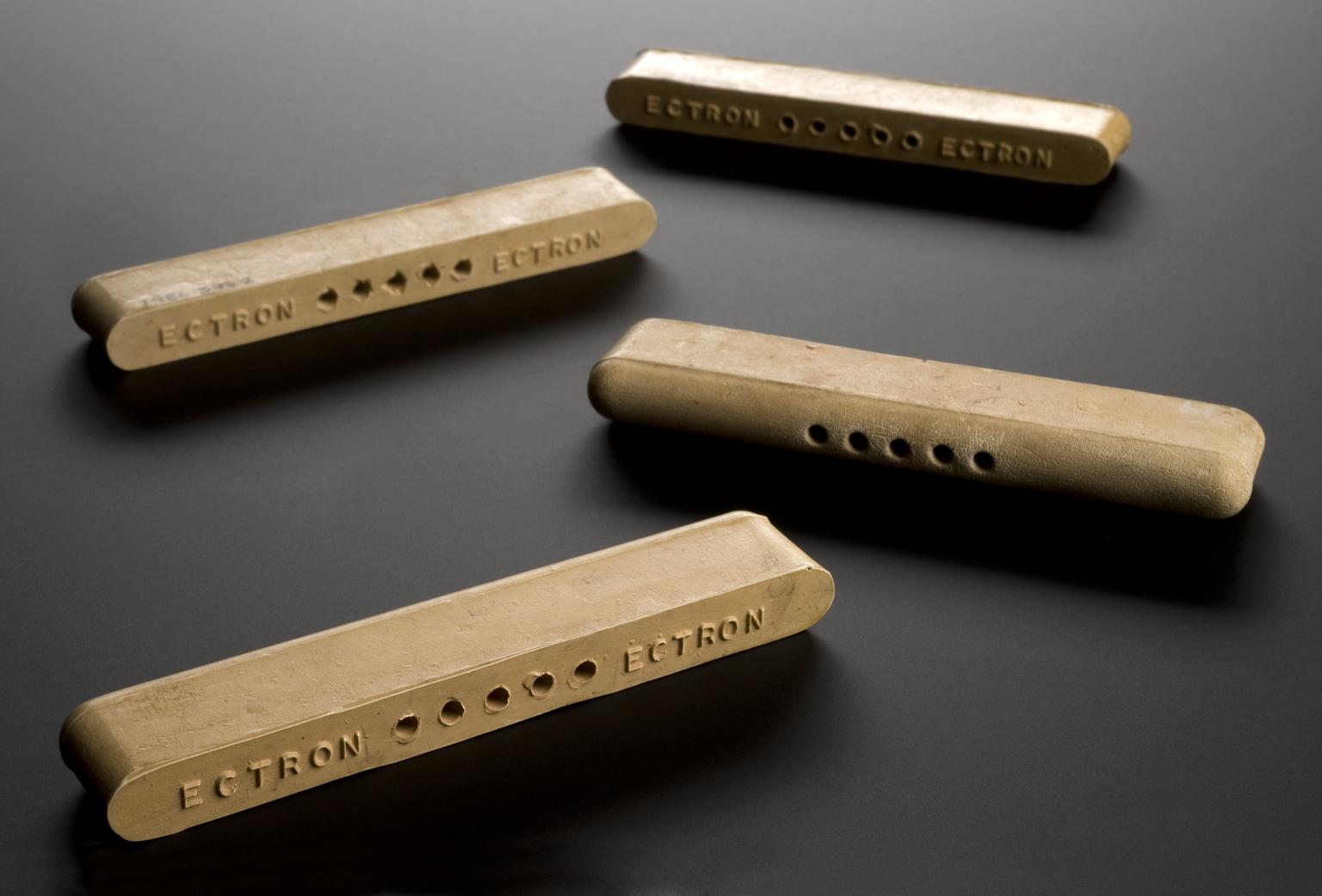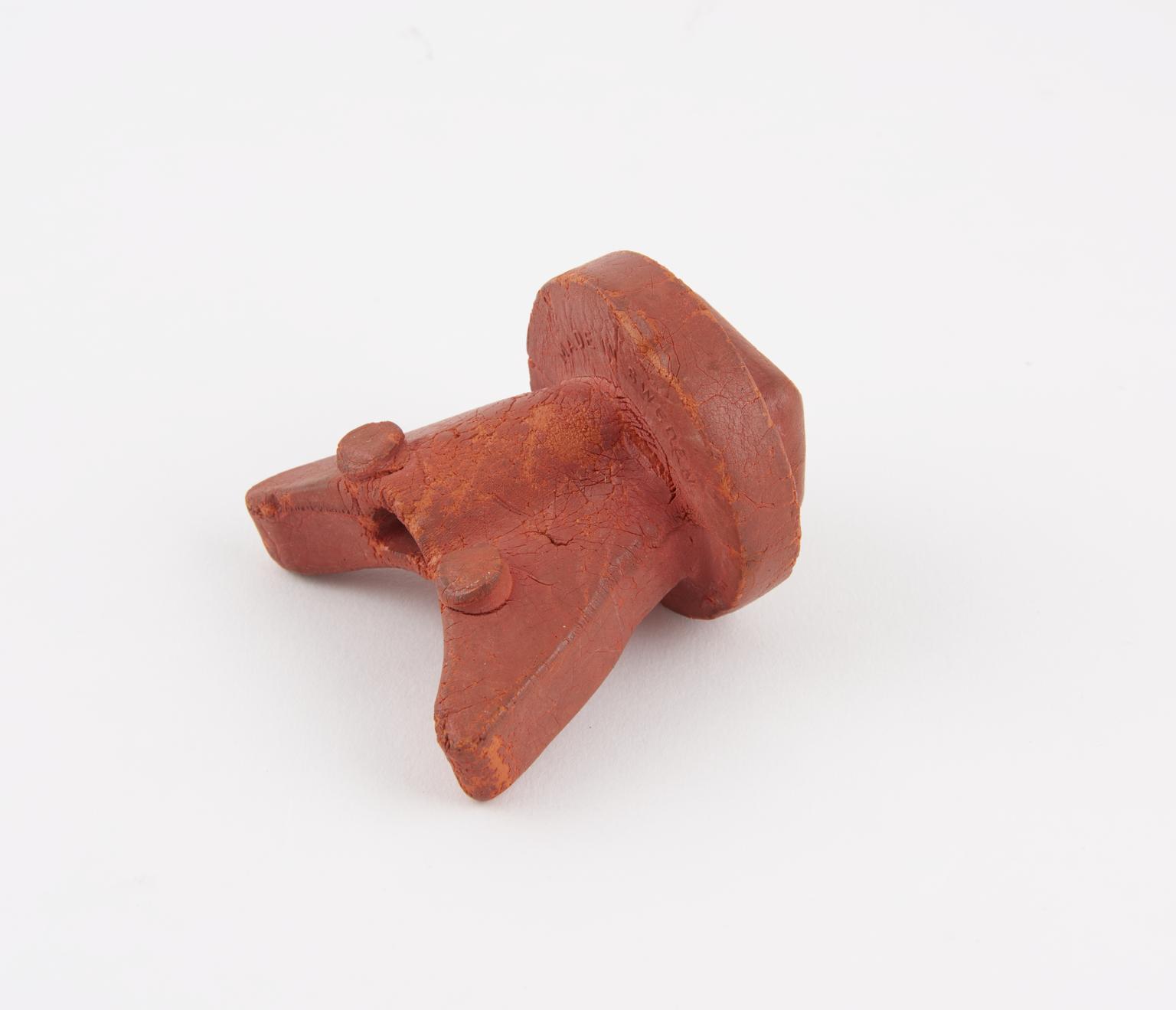
Rubber mouth gag
Rubber electro-convulsive therapy (ECT) mouth gag by Ectron used at St. Francis Psychiatric Hospital, 1950-1990. Some teeth marks are visible.

Rubber electro-convulsive therapy (ECT) mouth gags, comprising four gags by Ectron and one by Elprotect, used at St. Francis Psychiatric Hospital, 1950-1990. Some teeth marks are visible.
Rubber mouth gags protected patients from harming themselves during electroconvulsive therapy (ECT). This psychiatric treatment was developed in Italy in 1938. It applied electric currents to the brain in timed pulses, causing a convulsion or seizure. It was thought possible to 'shock' a patient out of a severe mental disorder. From the 1930s until the 1980s, physicians thought the key to effective ECT was the severity of the seizure. Patients who choose ECT today are given a muscle relaxant. This means the electricity affects their brain but not their body. The gags were inserted into the mouth to stop the patient biting or swallowing his or her tongue. These examples were donated by St Francis Hospital, formerly Brighton County Borough Asylum. The scratch marks indicate they were well used.

Rubber electro-convulsive therapy (ECT) mouth gag by Ectron used at St. Francis Psychiatric Hospital, 1950-1990. Some teeth marks are visible.

Orange, wedge-shaped electroconvulsive therapy (ECT) mouth gag by Elprotect, Sweden, used at St. Francis Psychiatric Hospital, 1950-1990. Distortion is most likely due to natural decay of rubber rather than during usage.
Rubber electro-convulsive therapy (ECT) mouth gag by Ectron used at St. Francis Psychiatric Hospital, 1950-1990. Some teeth marks are visible.
Rubber electro-convulsive therapy (ECT) mouth gag by Ectron used at St. Francis Psychiatric Hospital, 1950-1990. Some teeth marks are visible.
Rubber electro-convulsive therapy (ECT) mouth gag by Ectron used at St. Francis Psychiatric Hospital, 1950-1990. Some teeth marks are visible.